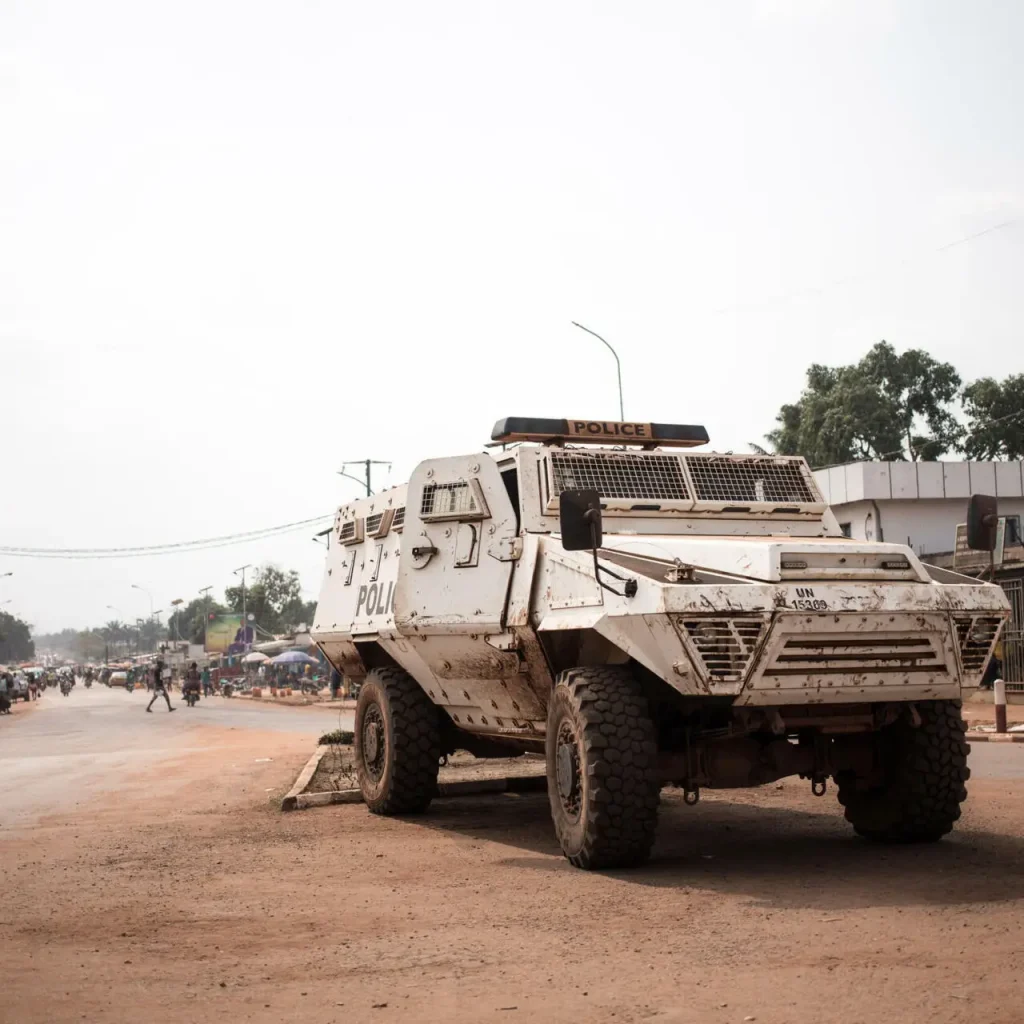On January 13, 2021, rebels from the Coalition of Patriots for Change (CPC) launched coordinated attacks on Bangui’s outskirts, targeting army brigades 9 and 12 km from the capital, the closest assault since the December 2020 election, per UN MINUSCA.
MINUSCA, alongside Central African Republic (CAR) forces, Rwandan troops, and Russian paramilitaries, repelled the attack, killing over 10 rebels and capturing five, though a Rwandan peacekeeper died, per. Local residents fled, and markets in PK12 closed amid gunfire, per.
Context of Violence
The attack followed the CPC’s offensive to disrupt President Faustin-Archange Touadera’s re-election on December 27, 2020, which the government labeled an attempted coup led by former President Francois Bozize, per. Bozize, ousted in 2013, denied involvement. The election, with only 35% voter turnout due to rebel control of two-thirds of CAR, deepened instability, per CFR. The CPC aimed to exploit Bangui’s vulnerability, per.
UN and International Response
UN Secretary-General Antonio Guterres and the Security Council condemned the attack, urging dialogue to end violence, per. MINUSCA tightened security and enforced a 6 pm curfew, per. France, CAR’s former colonial power, requested a closed-door Security Council meeting, reflecting international concern, per. Analysts noted rebels targeted Bangui to expose Touadera’s weak control, per.
Humanitarian and Strategic Impact
The attack displaced 60,000 people, with 50,000 fleeing to the Democratic Republic of Congo, per UNHCR. CAR’s economy, crippled by conflict, saw 75% of its 4.9 million population in poverty, per World Bank. Rebels disrupted the RN3 supply route to Cameroon, causing food shortages, per. Thierry Vircoulon called it a “war of nerves,” with rebels aiming for urban guerrilla tactics rather than capturing Bangui, per.
Critical Analysis
The CPC’s attack exposed Touadera’s reliance on foreign forces, with 12,000 MINUSCA troops and Russian Wagner Group paramilitaries bolstering his regime, per. However, MINUSCA’s effectiveness is questioned, as 2025 reports cite ongoing attacks on peacekeepers and restrictions on drone use, per. Allegations of Wagner’s human rights abuses, including 2024 killings in Haut-Mbomou, complicate CAR’s security partnerships, per. Low voter turnout and rebel control suggest limited government legitimacy, per CFR.
Path Forward
CAR needs strengthened MINUSCA patrols and regional cooperation, as seen in 2024 Cameroon-CAR transhumance talks, to curb cross-border insecurity, per. Prosecuting Bozize and CPC leaders, per, could deter rebel activity, but impunity persists due to weak state presence, per. Humanitarian aid, with $1.5 billion needed for 1.9 million people in 2021, per UNOCHA, must prioritize IDPs. Without governance reforms and inclusive dialogue, CAR risks prolonged instability.






